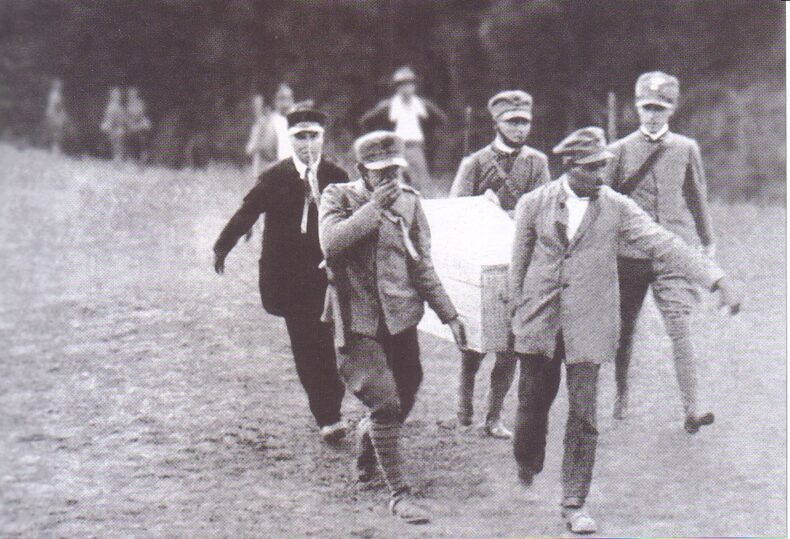
By Alfio Bernabei
On 16 August 1924 the body of Italian Socialist MP Giacomo Matteotti was found in woods about 15 miles outside Rome. The five men who had kidnapped and killed him on 10 June, all identified within days and all members of Mussolini’s secret police, had agreed not to disclose the place where the body had been hidden thus fulfilling the psychological component of the crime: keep the country guessing for as long as possible as a warning to all antifascists.
The threat that Matteotti had presented was twofold: through his speeches in the Chamber he had shown his determination to put pressure on the King to urge Mussolini to disband the fascist militia that was in effect a private terrorist army used to strangle democracy (see Matteotti’s speech on 30 May); secondly, he had successfully began to build an antifascist platform abroad to the extent that one could see him gaining more political trust and clout on the international stage than Mussolini himself.
The lapse of time between the killing and the finding of the body was put to good use by Mussolini. A false narrative was developed suggesting that the assassination had been motivated by the need to prevent Matteotti from disclosing documents which he had supposedly acquired proving that some of Mussolini’s associates were involved in accepting bribes from an American Oil Company. Why not follow the trail of a “financial scandal” instead of a political assassination? This “legend” as Matteotti’s widow, Velia, called it, was used by Mussolini to show himself as a man of impeccable morality and high principles, quite capable of acting ruthlessly to uphold justice and good conduct. He staged an eye-catching prolonged reshuffle ditching friends and close collaborators, waited for the Opposition to demonstrate its suicidal weakness and only then took responsibility for the murder in a crude public act of defiance. Soon after, the dictatorship that had already started long before Matteotti’s murder was fully and swiftly implemented landing Italy with a page of squalid history from which it will never fully recover.
Over the past few months a number of antifascist organizations in Italy have marked the centenary of Matteotti’s murder. But they have acted in an uncoordinated fashion. Not enough has been done to create the kind of impact that might have given rise to a focused antifascist campaign or a broad-based antifascist movement attracting international attention.
The president of Italy, Sergio Mattarella, did pay a visit to the street in Rome where Matteotti was kidnapped. Following that example a responsible antifascist secretary of state for Culture might have thought fit and appropriate to encourage all schools in the capital to send their pupils and teachers to the same spot in a massive demonstration of historical significance shown on RAI, the public broadcasting company of Italy. But nothing of the kind took place.
One cannot but suspect that a certain class of politicians in Italy are hoping to bin the entire episode and wait to hear the question: Matteotti who?





